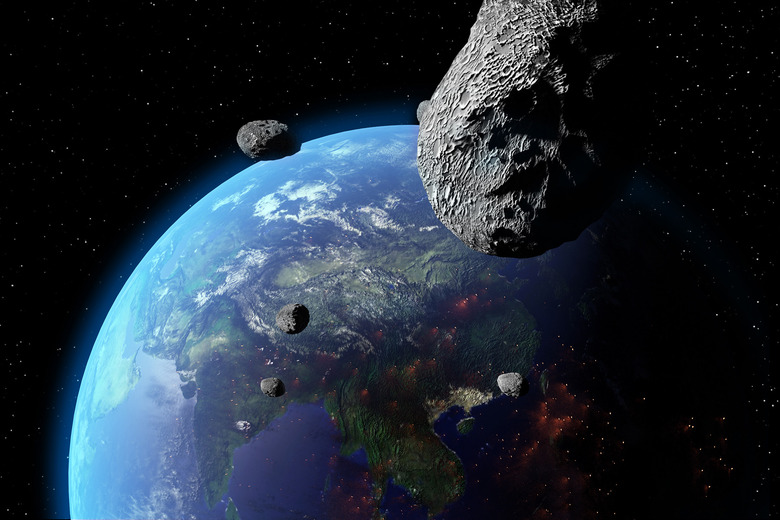Asteroid 2023 BU Will Fly So Close To Earth On Thursday, You Might Be Able To See It
Space is full of asteroids and other celestial objects, and we constantly discover new ones. Take asteroid 2023 BU for example. This asteroid was just discovered last weekend by amateur astronomer Gennadiy Borisov, who watches the skies from Nauchnyi in Crimea. This newly discovered space rock is relatively small for an asteroid, estimated to be just 3.5 to 8.5 meters across (11.5 to 28ft).
What makes the reporting of asteroid 2023 BU so special, though, is that this asteroid is currently headed straight for Earth. It won't collide with our planet – even if it did, damage should be minimal – but it will come extremely close. It will pass closer to our planet than most of the satellites we have in orbit, according to BBC.
Astronomers say Asteroid 2023 BU will pass within 3,600km (2,200 miles) of Earth itself, making this a very close shave as far as asteroid passes are concerned. It'll be closest to Earth at around 19:27 EST tonight, January 26. It's unclear if you'll be able to see the asteroid in the sky, and astronomers say the chance of it hitting a satellite will be very low.
Asteroid 2023 BU is intriguing for more than just its close approach to Earth, though. While not large enough to cause mass damage, a 3.5-to-8.5-meter asteroid is still capable of exploding in the sky and causing some injuries if it explodes over a very populated area. Additionally, it shows just how many asteroids are lurking near our planet that we don't know about.
Thankfully, NASA and others are working on asteroid detection systems. NASA has even tested a redirection test that could help change the orbit of an asteroid on a direct collision course. Unfortunately, the use of the D.A.R.T system requires knowledge of the asteroid before it becomes too much of a threat to Earth. Luckily, though, asteroid 2023 BU isn't a threat at the moment.
